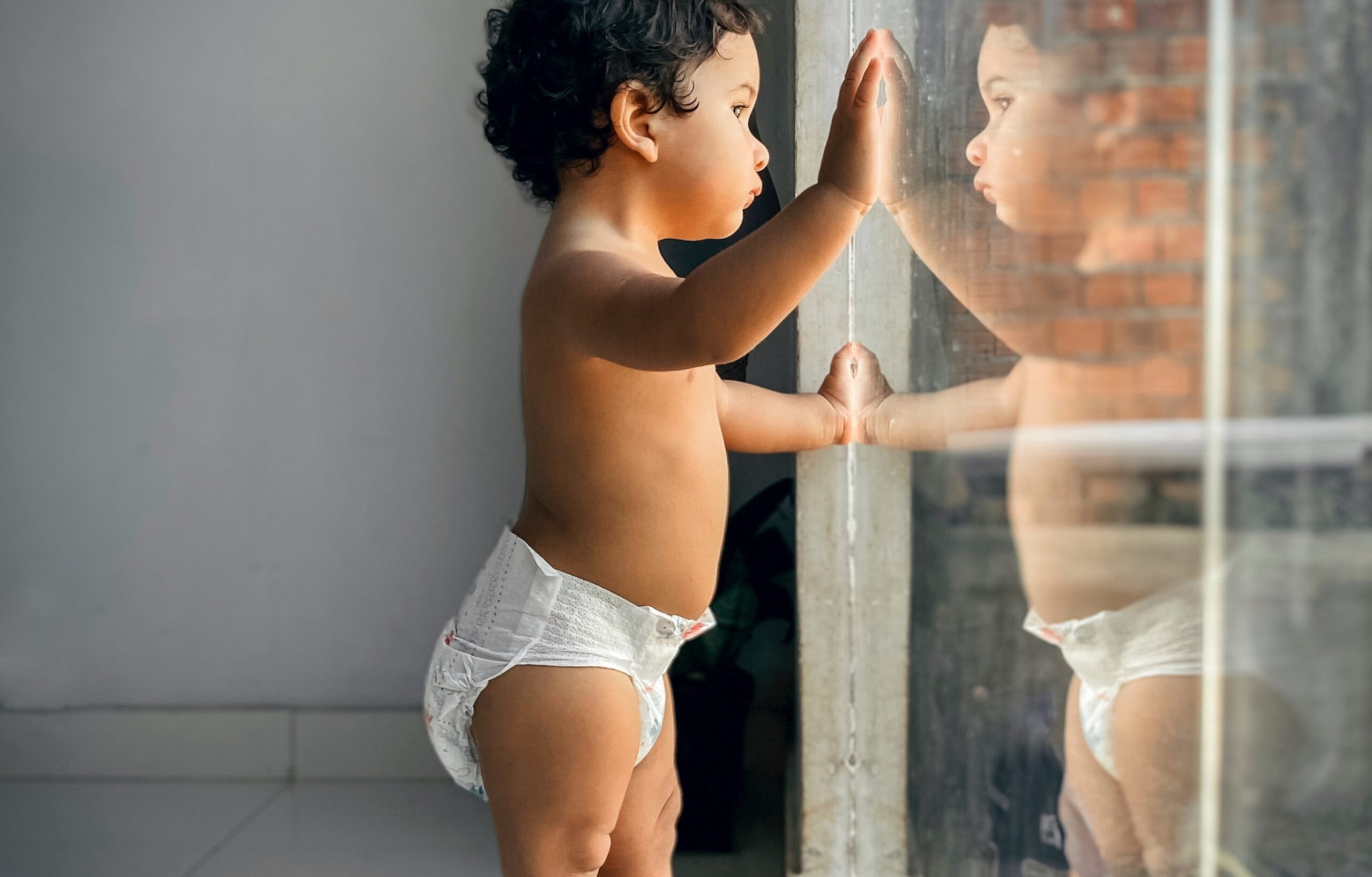Potty training can be very easy but only if your child is ready!
TROUBLESHOOTING POTTY TRAINING ISSUES: 5 COMMON PROBLEMS AND HOW TO ADDRESS THEM
Children differ in how fast they walk and talk and same goes for potty training. Some children are ready to potty train earlier than others; some can be potty trained before 2 years of age some after 4.
When children are ready and parents are consistent, most children can be daytime potty trained within a week or two. For other children, it can take longer.
In this article we will cover common issues that arise during potty training and discuss how to address them:
Fears
Toddlers can have unusual fears that don’t make sense to adults. When it comes to toilet training, a common one is a fear of falling in the toilet. This fear can be easily addressed by offering a child seat or potty before graduating to a regular toilet.
Other fears don’t have such a practical solution, such as being afraid that something will come out of the toilet, being worried about their poop leaving (separation fear), and fear of pain.
If your child appears resistant about sitting on a toilet, ask them whether they are afraid. Allow your child to express that fear and ask questions in a non-judgemental way to better understand it.
You can provide feedback and information at whether their fear is valid, but make sure not to trivialize or laugh away their fear. If this is impeding their potty training, it is clearly something that they think is important.
If the fear is related to pain, then your child might be experiencing some level of constipation or diarrhea. In some instances, children might remember and be afraid to experience it again. In this case, you can validate the experience and reassure them that the pain will not happen every time.
Children with a more anxious temperament might not be as easily reassured or comforted when fears are addressed. Be patient.
Withholding and Constipation
Withholding is the conscious effort to prevent a bowel movement. Some children withhold due to fear, not being ready or needing a sense of control.
It comes to no surprise that frequent withholding leads to constipation due to the child learning to ignore their body’s signals and because stagnant stool leads to blockages.
Frequent constipation often causes pain when the child finally does have a bowel movement, in turn increasing their avoidance of bowel movements. Signs your child is constipated include decreased appetite, small hard stools, and expressions of pain during a bowel movement.
This vicious cycle can be broken by increasing the body’s signals and reducing the likelihood of constipation through dietary changes. Here are a few basic suggestions:
- Water: Increase your child’s water intake. Avoid high sugary drinks like fruit juices and sodas. Milk can be hydrating but should not replace water. Too much dairy can increase risk of constipation in some toddlers.
- High Fiber foods: Prioritize high-fiber foods, such as most fruits, vegetables and oatmeal. You can increase vegetable intake indirectly by adding it to smoothies, tomato sauces and soups. Reduce refined sugars (cookies, cake, candy, prepackaged snacks).
Do you have a picky eater or have more questions on how to make these dietary changes? Connecting with your primary care provider or a registered child dietician can help.
Using the Wrong Reinforcer
All children are motivated by parental praise. High-fives, hugs, smiles, and verbal expressions of pride can go a long way in increasing any behaviour including potty training and should always be used first.
However, praise is not sufficient for some toddlers. Generally, children will be motivated by different things, depending on their temperament and preferences. Some children are motivated by tangible reinforcers like treats, stickers, or permissions. Others are motivated by social modeling or a desire to be more independent.
Figuring out what motivates your child can help move potty training along. Keep in mind the following when using reinforcers:
- If you are using tangible reinforcers, make sure they are of token value (e.g., one gummy bear instead of a bag of candy, one sticker instead of a new toy and 10 more minutes of TV instead of a movie before bedtime).
- Children who are motivated by a desire for independence or by social modeling, might benefit from watching other children or parents go to the washroom or helping younger children get potty trained. For these children, you can encourage them by asking if they want to be like their sibling, friend or cousin.
Life Transitions
You should avoid potty training just before or after a big change in your child’s life. For example, its not a good idea to start potty training when the child is starting a new daycare, moving homes, adjusting to a new sibling, or experiencing parental separation.
Children need to focus on adapting to these transitions and your attempts at potty training are more likely to be met with failure and frustration creating a negative experience for them.
So when is the right time? There is no perfect timing but aim for a few quiet weeks where you can concentrate on potty training.
Regression
Similarly, potty-trained toddlers can experience a regression in their potty training when confronted with big life changes. Even older children can experience a few day-time accidents or bed wetting.
Such a regression is completely normal. What you need to do is to arm yourself with a lot of patience.
If your child has been fully poly potty trained before, then they have the emotional and physical capacity to go to the washroom on their own. They will go back to being fully potty train once they have adapted to the new situation. It is really a question of time and how much support and understanding we provide during the transition.
I Have Tried These Strategies, and Nothing Seems to Work!
Although several strategies you can use as a parent to help your child become potty trained (including the strategies described above) many things are outside your control. A child might not be physiologically, physically, emotionally, or cognitively ready to potty train.
Forcing a child to potty train too early and it may result in increased meltdowns and trantrums, loss of self-esteem and confidence, and fears which can all in themselves delay readiness.
If your child does not start to react favorably within 1-3 weeks, stop and try again in 2-3 months.
Seek Professional Help: Parent Consultation
Dr. Leon is an experienced and dedicated psychologist who works with children and their parents on a variety of behaviours, including potty training. If you are struggling with potty training even after having put in place the strategies described above, a parent consultation can help you and your child.
For further reading:
- General potty training book: Oh Crap! Potty Training: Everything Modern Parents Need to Know to Do It Once and Do It Right – by Jamie Glowacki
- Children’s book for children who withhold: It Hurts When I Poop! : A Story For Children Who Are Scared To Use the Potty – by Dr. Howard J. Bennett
Frequently Asked Questions
How can I be supportive of my child if they have accidents or experience a regression?
The most important thing is to not punish or shame them when they have accidents. Normalise that this can happen and that you will help them get to the washroom the next time. Support your child by expressing your firm belief that in time they will stop having accidents.
Can I give my child a laxative if he is withholding and constipated?
There are over-the-counter medications that can help with occasional constipation in children. These medications are not to be used continuously but can help break the cycle of withholding and constipation. Note that you should always ask your primary care provider first before using any new medications or if your child is experiencing chronic constipation. Your primary care provider will also be able to rule out uncommon but serious medical conditions that can cause constipation.
How do I know if my child is ready to be potty trained?
Factors associated with readiness include being capable of taking off diaper/underwear on their own, being able to access a bathroom on their own, showing interest in being potty trained, showing signs that they know a bowel movement is coming, feeling upset or ashamed when they soil their diaper, asking for their diapers to be changed, going longer periods of time without their diapers getting wet. A combination of 3 or more of these is probably a sign that you can start talking to your child about potty training.
In Summary
Troubleshooting potty training issues involves maintaining patience and consistency while identifying potential triggers, such as stress or changes in routine, that might affect the child’s progress. Adapting the potty training approach, offering positive reinforcement, and avoiding punishment can help address challenges, creating a supportive environment for the child to learn and succeed in their potty training journey.

Dr. Stephanie Leon
Dr. Leon is a clinical psychologist and neuropsychologist practicing in the province of Ontario and Quebec. She works with children, teens, and their parents to address emotional, behavioural, and cognitive difficulties. Dr. Leon offers online psychology services through the Leon Psychology Clinic.
Found this helpful? Share with a friend!

